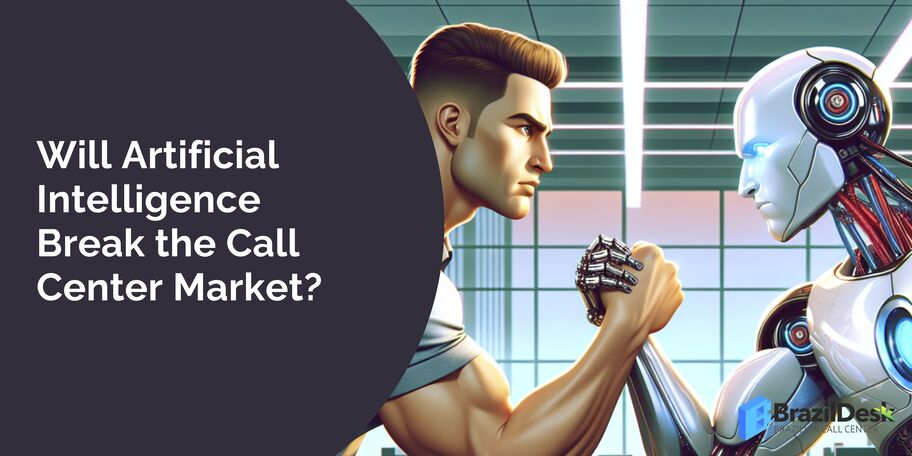In an era where technological advancements are reshaping industries, one question looms large for many professionals in the call center sector: Will artificial intelligence (AI) break the call center market?
The Rise of AI in Customer Service
The integration of AI into customer service has been both rapid and profound. Tools powered by AI, such as chatbots and virtual assistants, are increasingly being used to handle routine customer inquiries, process information, and even analyze customer sentiment. These innovations have been driven by the need to reduce operating costs and improve efficiency. According to a Bloomberg article, the Philippines, which is known for its significant volume of call centers, is feeling the impact of this shift.
The Philippines’ business process outsourcing (BPO) sector, expected to generate over $38 billion in revenue this year, is particularly vulnerable. Adopting AI tools is transforming the sector, especially in customer service roles. AI platforms assist agents by summarizing interactions, processing information, and analyzing sentiments, thereby indicating a broader change in the BPO industry.
The Human Cost of Automation
While AI offers numerous benefits, it also poses significant risks, particularly to employment. Christopher Bautista, a veteran of the call center industry, recently lost his job due to AI replacing his role. He has since found work in sales but believes many BPO jobs will eventually be replaced by AI.
A study by Avasant, a consulting firm, estimates that up to 300,000 BPO jobs in the Philippines could be lost over the next five years. However, the same study suggests that AI could create approximately 100,000 new jobs in areas such as algorithm training and data curation. This dual impact represents both a risk and an opportunity for the sector.
Economic Implications for the Philippines
The BPO sector is crucial to the Philippine economy, serving as the largest private employer and a significant contributor to the GDP. For many Filipinos, these jobs offer a reasonable income without requiring a college degree. The government had hoped that the sector would help elevate more citizens into the middle class and stimulate the creation of white-collar jobs. However, the rise of AI threatens this vision.
Despite these challenges, the Philippines is adapting. The country is already testing new AI tools and has launched a research center and several training initiatives to enhance the skills of the 1.7 million workers in the sector.
The Future of Call Centers and Human Support
The concern that call centers could disappear within a year due to AI is not unfounded. Routine tasks and basic support functions are increasingly being handled by AI, reducing the need for human intervention. However, this does not spell the end for human support. Instead, it highlights a shift in the type of support required.
The Growth of Digital and Dedicated Support
While traditional telemarketing and basic support roles are under threat, digital support is growing rapidly. More companies are moving their customer service operations online, utilizing live chat, email, and social media to engage with customers. This digital shift often involves AI, but it also requires human support to handle complex issues and provide a personal touch that AI cannot replicate.
For instance, while an AI chatbot can handle routine queries, a human agent is still needed to resolve more complicated problems, offer empathy, and build customer relationships. This combination of AI and human support is seen as the future of customer service.
The Role of Upskilling
As AI takes over more routine tasks, the need for upskilling becomes crucial. Workers in the call center industry must adapt by learning new skills that complement AI technologies. Training in areas such as data analysis, AI supervision, and advanced customer interaction techniques will be essential.
Conclusion
The integration of AI into the call center market is inevitable, and it brings both challenges and opportunities. While AI threatens traditional roles, it also creates new possibilities in digital support and specialized areas requiring human expertise. The future of customer service lies in a hybrid model, combining the efficiency of AI with the personal touch of human agents.
For those concerned about the impact of AI on their careers, the key lies in adaptation and upskilling. By staying ahead of technological trends and acquiring new skills, professionals can remain valuable assets in the evolving landscape of customer service.







